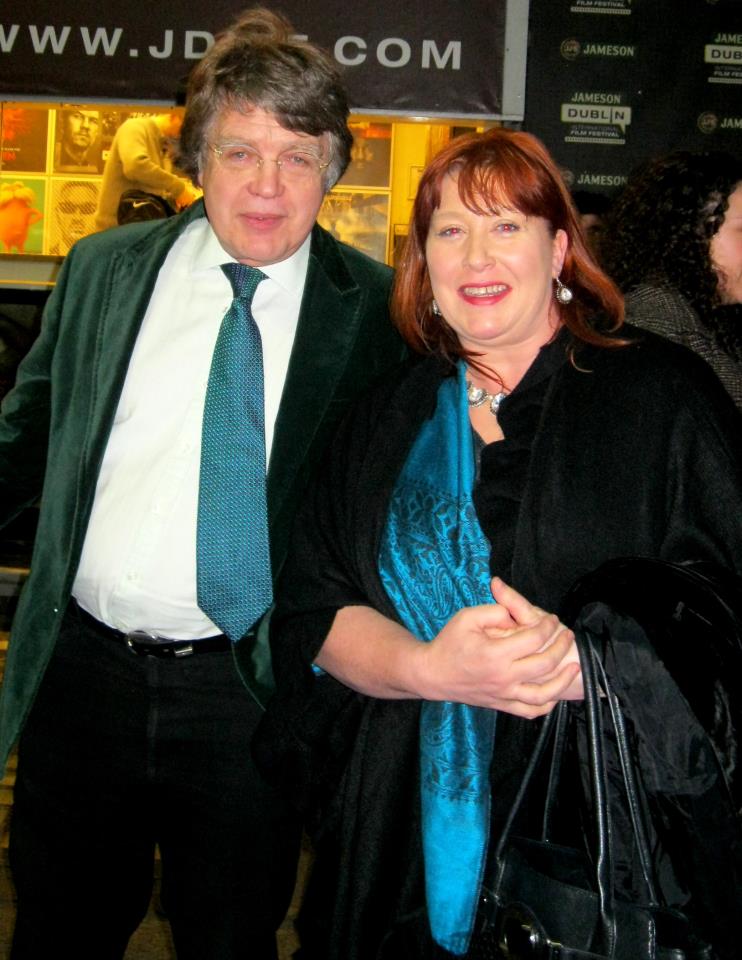‘Now is the Winter of our discontent. Made glorious summer by this sun of [New] York’. A fitting tribute by Irish President, Michael D. Higgins who, quoting Shakespeare, welcomed and honoured that brilliant son of New York, and legendary Hollywood star, Al Pacino.
Pacino made red carpet history in Dublin last Monday evening, where his documentary drama film, ‘Wilde Salome’ was screened as part of the Jameson Dublin International Film Festival. Fans lined the Savoy cinema’s red carpet on O’Connell Street for up to three hours in advance of his arrival, and were thrilled with the time he took to meet and greet them on a cold and windy February night. Inside the cinema, amidst a full capacity audience, and in the presence of Oscar Wilde’s grandson, Merlin Holland, the former Oscar winner was presented with the festival award – the Volta (aptly named after Dublin’s first cinema, which was established by James Joyce).

The film offers a look at Pacino’s obsession with Wilde’s play, Salome, in which he both acts (playing the part of Herod) and directs, and is highly experimental in that it covers three distinct genres – drama, film, and documentary.
Originally written in French, Oscar Wilde began Salome in Paris in 1891 and completed it is Torquay, England in 1892. He was inspired to write the text following a dinner conversation (with men) regarding a bible story. However, when the play went into rehearsal, it was immediately banned, not, as one might imagine because of its decadent elements (many of its themes were derived from the decadent movement), but because of its biblical content, which essentially left it open to charges of blasphemy.
Set in biblical Judea, Wilde’s play examines both political and gender power relations, addressing issues such as perverse/extreme desire (as demonstrated by that of Salome for the prophet, Jokanaan) as well as Herod’s lust and desire for his step-daughter, Salome. The banquet setting suggests Roman decadence at the time, but also acknowledges different religious groupings – there are both Jews and pagans present, together with the Christian, Jokanaan (John the Baptist) who is held captive. The symbolism of the dance, the fruit, and the kiss all represent the notion of appetite and excess, both physical and spiritual, and Salome’s character represents two way of being – innocent and pure, or venal and perverse – a duality which Pacino links with Wilde’s own life choices, and their tragic consequences.
Pacino’s creative journey with Salome is one of ‘obsession’ – an obsession he admitted to what has been a longstanding source of fascination, and which he described as a ‘labour of love’. It is interesting in that he manages (somehow) to integrate three distinctly separate genres – beginning with a staged ‘reading’ of the play in LA (which was not met with complete satisfaction by audiences there), then incorporating a filming of parts of the drama (in modern dress), while at the same time a ‘reality TV’ – like documentary is being filmed about the entire project. Whilst LA audiences were not entirely enamoured by the ‘reading’ of the play, Pacino stresses the importance of Wilde’s use of language, and the ultimate supremacy of language/words over theatrical costumes, props etc. Indeed, in this regard, one calls to mind Oscar’s words to a San Francisco audience where he stated ‘The Saxon took our lands and made them destitute. We took their language and added new beauties to it’ – a bold claim which Pacino brings to life near the end of the film, where, fighting for his immortal soul, Herod (Pacino) pleads with Salome to rescind her demand for the head of the Holy man on a silver salver as payment for her having danced for him to appease his lust for her.
Pacino’s ‘Wilde Salome’ is not a drama/film/documentary for those who want a neat tidy ending. It is however, his ‘most personal project’ to date – leaving one with a feeling that it is a ‘work in progress’ – a subject to which he will undoubtedly return, and hopefully remain obsessed with well into the future.
-Caroline Elbay
Adjunct lecturer ‘The Irish Literary Experience’ – Champlain College Dublin